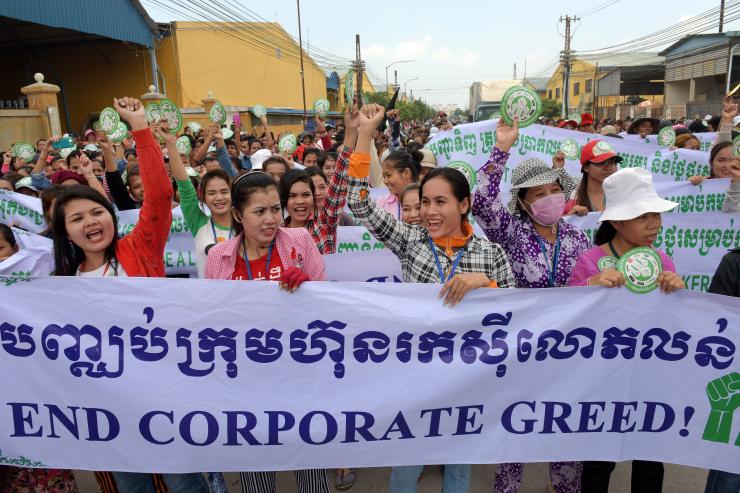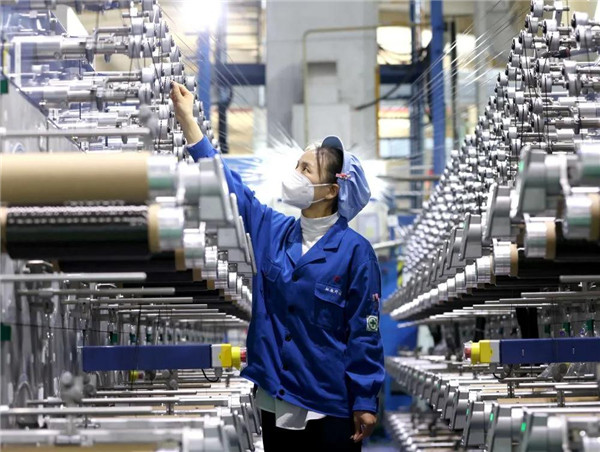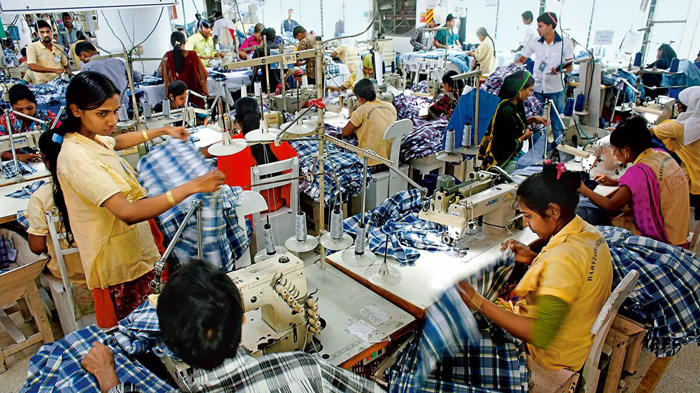"A coalition of Cambodian unions are joining together to demand that the brands immediately ensure a minimum wage of $177 is paid in their Cambodian suppliers and negotiate directly with Cambodian unions a binding agreement to achieve living wages, decent purchasing practices, stable employment, and union rights for the long-term. They have also urged the government to refrain from passing the law until genuine consultation has taken place with independent unions."

On International Human Rights Day, labour network Clean Clothes Campaign (CCC) joined more than 25 countries in a global call on major brands such as H&M, GAP, Levi's and Inditex to make sure Cambodian workers receive $177 as a first step towards a living wage. In addition, the organization has pledged its support to the Cambodian union coalition to make sure a controversial Trade Union Law will not be passed before genuine and inclusive consultation with civil society and trade unions is guaranteed by the government of Cambodia.

IndustriALL, one of the largest federations of trade unions around the world, recently said that it was disappointed with the group of major international brands that appear to have largely ignored a pledge made last year to help Cambodian factories pay their workers a higher minimum wage.
Fight for Cambodian workers’ rights intensifies
In September 2014, IndustriALL appreciated the announcement made by eight brands to raise the prices they paid to Cambodian factories for their garment orders so that the factories could in turn pay higher wages to its workers. The Garment Manufacturers Association in Cambodia (GMAC) also welcomed the move. Even the government raised the garment sector’s monthly minimum wage twice since then, first from $100 to $128 and then to $140.
According to Clean Clothes Campaign, the Labour Advisory Council (LAC), voted to approve a new minimum wage of $140, to be implemented in January 2016 for Cambodia’s 700,000 garment workers, despite objections from a number of unions. This insufficient $12 wage increase is a slap in the face of workers who have been organising for over a year to demand a fair minimum wage of $177, it said.
Amid all these developments, the eight brands appear not to have raised their prices, said IndustriALL. Among the brands that joined the pledge were Swedish clothing giant H&M, which places more orders in Cambodia than any other buyer. It was joined by C&A, Inditex, New Look, Next, the N Brown Group, Primark and Tchibo.
In September, GMAC said 99.4 per cent of the member factories it surveyed said that they were receiving the same prices from their buyers as the year before, sometimes even less. It said a third of the factories that responded claimed to be getting up to 10 per cent less. Now Clean Clothes Campaign has decided to organise demonstrations in front H&M, Adidas and other stores in the US, Europe and Asia. In Cambodia, thousands of workers from a coalition of eight unions will rally the streets in three provinces, wearing stickers saying: ‘We need a living wage!’
Workers fainting over fashion
Cambodia recently saw another wave of mass fainting in garment factories. In August 2015, nearly 400 workers fainted in four factories across Cambodia. On July 2, 2015 alone, 38 workers lost consciousness in a factory in Phnom Penh. In 2014, the Ministry of Labor recorded that more than 1,800 workers collapsed in 24 factories. Mass fainting has been linked to malnutrition, high targets and long working hours, as a consequence of low wages and the need for workers to survive.
A coalition of Cambodian unions are joining together to demand that the brands immediately ensure a minimum wage of $177 is paid in their Cambodian suppliers and negotiate directly with Cambodian unions a binding agreement to achieve living wages, decent purchasing practices, stable employment, and union rights for the long-term. They have also urged the government to refrain from passing the law until genuine consultation has taken place with independent unions.
Athit Kong, Vice President of C.CAWDU, an independent union in Cambodia, says “After years of campaigning, it is clear that the only way Cambodian workers will get a decent wage they can live on, is collective bargaining between brands, as the principle employers, and the garment unions. A minimum wage of $140, as its set now, is like throwing bread crumbs at your impoverished workers. To simply survive, we need $177 as a very first basic step.”
Clean Clothes Campaign has now urged brands to make sure $177 is paid immediately to the workers and genuine consultation takes places between the coalition of independent unions and the government regarding the Trade Union Law.
Cleanclothes.org www.industriall-union,org












